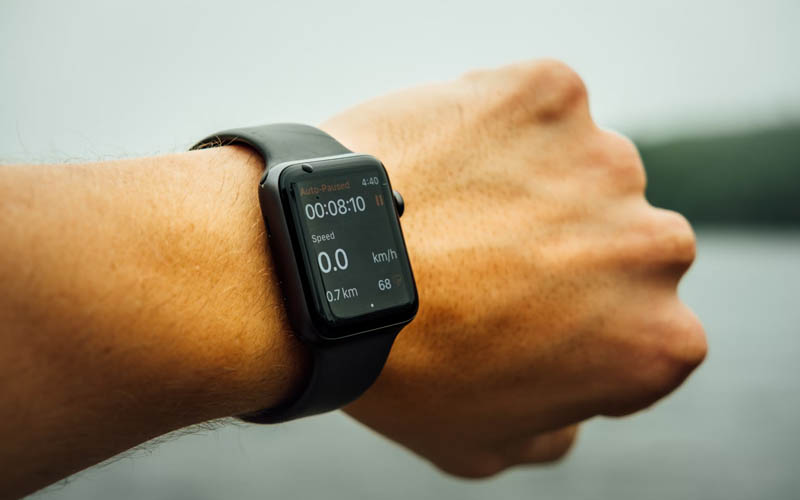Our mental health is fundamental to our happiness, relationships, and productivity, yet it’s often overlooked in the whirlwind of daily life. This is where mental health tracking apps come in. These tools help us monitor and understand our moods, habits, and sleep patterns, offering insights that drive meaningful change.
If you’ve been wondering how technology can support your well-being, this guide is for you. We’ll explore popular apps like Todoist and Notion, compare their features, and share tips to integrate them into your routines effectively. By the end, you’ll be equipped to enhance your mental health one app entry at a time.
Why Track Your Mental Health?
Mental health tracking isn’t just about logging feelings; it’s about identifying patterns, understanding triggers, and taking proactive steps.
- Awareness: Regular tracking increases your self-awareness. You begin noticing how your mood correlates with specific habits and external factors.
- Intervention: When you identify negative trends early, you can intervene with coping strategies or seek professional help.
- Insight: Over time, you’ll discover unique insights about yourself, from how sleep affects your energy to what drives your happiest days.
With life getting busier, mental health tracking apps make the process simple and accessible, anytime and anywhere.
ADVERTISEMENT
Top Mental Health Tracking Apps You Should Know
Mental health tracking is a growing niche in the app market, and two standout options are Todoist and Notion. While these apps weren’t originally designed as traditional health tracking tools, their flexibility and customization options make them ideal for the job.
What Is Todoist?
Todoist is best known as a powerful productivity and task management app, but its features go beyond work schedules. With a bit of creativity, you can transform Todoist into your personal mental health tracker.
Key Features of Todoist for Mental Health Tracking
- Habit Tracking
Set recurring tasks to build and maintain healthy habits like meditation, journaling, or regular exercise.
- Mood Tracking
Create a daily check-in task where you log your mood using emojis or short descriptions. E.g., “How do I feel today?” ✅ 😊
- Visualization
Todoist’s progress graphs show how consistent you’ve been with your habits over days, weeks, or months—a handy motivator!
- Reminders
Never forget self-care. Gentle reminders for downtime or bedtime can improve your sleep and overall well-being.
- Labels for Context
Use labels or tags to organize your tasks by areas like “Work,” “Family,” or “Relaxation” to balance priorities effectively.
Exploring Notion for Mental Health Tracking
Notion is another versatile app that helps organize thoughts, notes, and tasks—and takes personalization to the next level. While its features require more setup, it offers an unparalleled level of control over how your mental health data is presented.
Key Features of Notion for Mental Health Tracking
- Mood and Energy Journals
Create a dedicated page or template to journal your daily thoughts, emotions, and energy levels. Incorporate customizable tags for trends like “Happy,” “Stressed,” or “Energized.”
- Sleep Logs
Notion’s table database lets you track sleep length, quality, and any correlations between sleep and mood.
- Weekly Reflection Pages
Summarize how you felt during the week. Where did you shine? What could be improved? It’s all in one central space.
- Habit Trackers
Use checkboxes or progress bars to keep tabs on self-care habits like staying hydrated, exercising, or taking breaks from screen time.
- Integrations
Connect Notion with apps like Google Calendar to seamlessly integrate your mental health tracking into your daily schedule.
Todoist vs. Notion for Mental Health Tracking
Both Todoist and Notion have their strengths and appeal to different users. Here’s a handy breakdown of their differences to help you choose the right fit for your needs.
|
Feature |
Todoist |
Notion |
|---|---|---|
|
Ease of Use |
Beginner-friendly, intuitive UI |
Advanced, requires customization |
|
Mood Tracking |
Simple daily check-ins |
Detailed journaling capabilities |
|
Sleep Tracking |
Not a strong feature |
Comprehensive table tracking |
|
Habit Building |
Great for recurring tasks |
Good with visual templates |
|
Customizability |
Minimal adjustments needed |
Fully customizable templates |
|
Ideal For |
Users who want quick solutions |
Users who enjoy detailed setups |
If you’re looking for quick and easy setting up, Todoist is your friend. But if you’re excited to dig deeper into your mental health insights, Notion’s extensive features fit the bill.
Real Stories from Mental Health Tracking App Users
Sophia, 29, Designer
“I always had trouble sticking to habits, but Todoist made it so easy with reminders. Starting my mornings with meditation is now second nature!”
Raymond, 35, Entrepreneur
“Notion changed the game for me. I added sleep tracking to my journal, and that simple insight helped me spot the connection between my low mood and bad nights.”
Tips to Maximize Mental Health Tracking Apps
To get the most benefit from these tools, consistency is key. Here are a few practical tips to integrate mental health tracking into your daily life.
- Start Small
Log just one or two metrics (like mood and sleep) before adding more. You’re more likely to stick to it.
- Pair with Existing Habits
Tie your tracking to existing routines, like checking your tasks after breakfast or reflecting before bed.
- Experiment with Formats
Use different layouts or templates to find what works best for you. Notion’s customization can give you fresh motivation.
- Set Weekly Goals
Decide on one small thing you want to improve each week, like walking every day or journaling your worries.
- Review Regularly
At the end of the week or month, reflect on patterns or trends in your mood and habits. Adjust your actions accordingly.
Enhance Your Well-Being with Technology
Keeping tabs on your mental health is more than a checklist—it’s a gateway to understanding yourself better and caring for your overall well-being. With apps like Todoist and Notion, you can build positive habits, recognize patterns, and take control of your mental health.
ADVERTISEMENT
Technology is a tool to empower, not replace, your personal efforts. Choose the app (or combination) that suits your style, and make self-care a priority—starting today.
ADVERTISEMENT


